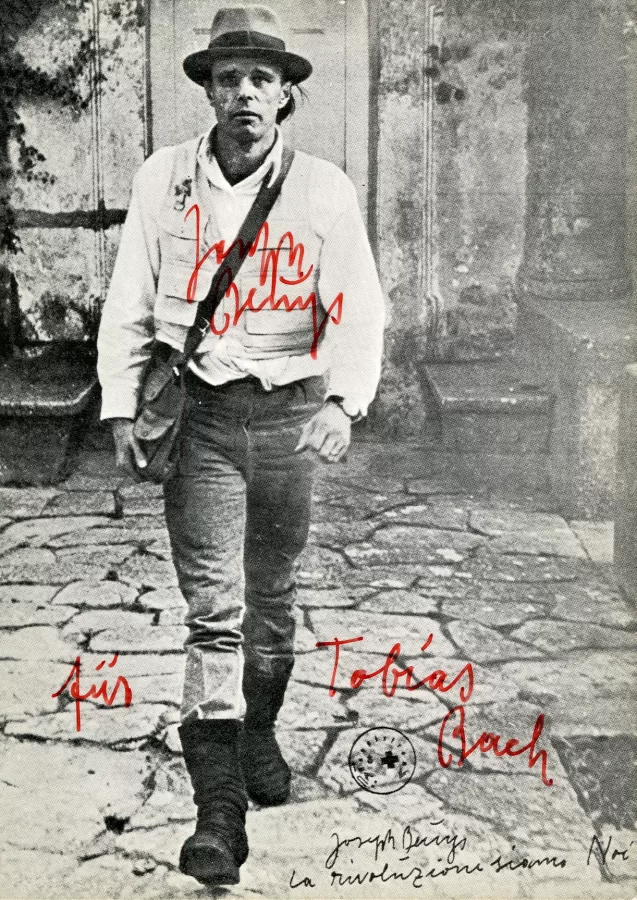Joseph Beuys (German, 1921-1986)
Beuys was a renowned German performance artist, teacher, and art theorist who immersed himself in politics throughout his life. He is most renowned for popularizing the Fluxus movement–an international, interdisciplinary community of artists, composers, and designers in the 1960s and 1970s who foregrounded the experimental artistic process over finished objects. Beuys hosted “actions,” where acts of a ritual nature were performed. In his work Galleria Ferrari from 1978, Beuys is depicted with his hand out, as if he is addressing an audience, a few members of which you can see in the left-hand corner. His photographs were deeply influential in the postwar art world.
Educated in Rindern, Beuys served in the German Luftwaffe throughout World War II, and barely survived a plane crash. He was then held as a prisoner of war in a British internment camp until released after the war. Afterwards he pursued his educational interests in art and science, and then became an instructor of sculpture at Kunstakademie Düsseldorf as he honed his art practice. The most public collection of his work was installed in the Hessisches Landesmuseum in Darmstadt, where his work remains to this day. He also represented Germany at the Venice Biennale in 1976 and 1980. His works remain in the collections around the world.


